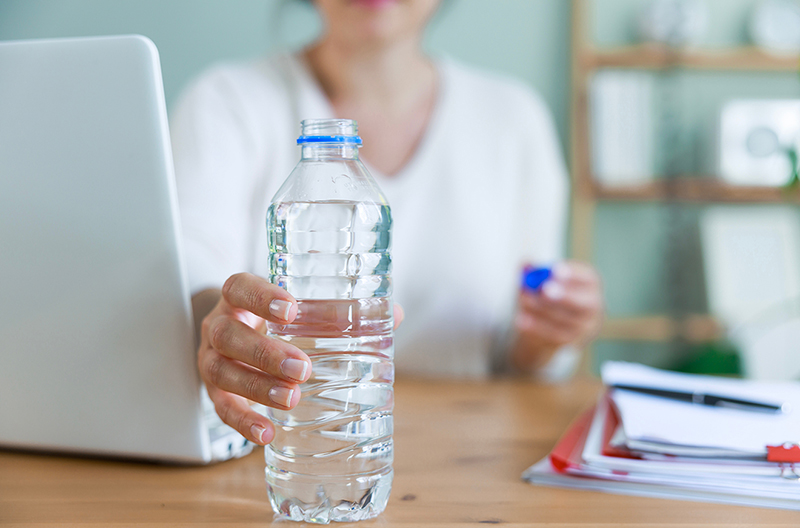Bottled water has retained its title as America’s favorite packaged drink, outselling carbonated soft drinks (by volume) for the eighth year in a row, new data from the Beverage Marketing Corporation (BMC) shows.
Bottled water’s total volume sold in 2023 was 15.94 billion gallons, compared to carbonated soft drinks, which sold 11.84 billion gallons. Bottled water retail sales surpassed $48 billion, up 6.5 percent from 2022.
“Multiple characteristics account for bottled water’s resonance with U.S. consumers, including its associations with healthfulness, convenience, safety and value. An array of packaging types, ranging from single-serve to bulk, facilitates a wide range of uses,” said John G. Rodwan Jr., BMC’s editorial director.
“Consumers’ thirst for beverages that offer benefits beyond refreshment alone also contributed to the fundamental hydrating beverage’s rise in the standings. Bottled water’s zero-calorie status and its lack of artificial ingredients appeal to many consumers. Even where tap water may be safe and readily available, people may prefer bottled water, which they often believe tastes better. The availability of packaged water wherever beverages are sold also differentiates bottled water from tap.”
Bottled water products compete with other packaged drinks, but not tap water. Most bottled water drinkers consume both tap water and bottled water, packaged in 3- and 5-gallon containers for the home and office, or at retail 1 and 2.5 gallon or individual size commonly sold by the case. However, when people are away from home and bottled water isn’t available, 70 percent say they will choose another packaged drink, according to a survey conducted in 2022 on behalf of the International Bottled Water Association (IBWA) by The Harris Poll.
Survey respondent choices were as follows: soda (22 percent), sparkling or sweetened or flavored bottled water (10 percent), sports drink (8 percent), tea (7 percent), coffee (6 percent), juice/fruit drinks (5 percent), functional water (5 percent), bottled tea (4 percent) and energy drink (3 percent).
Among the remaining 30 percent, a third (10 percent) would drink from a water dispenser, either using a refillable cup (5 percent) or disposable cup (5 percent). Ten percent would drink filtered tap water, 6 percent would drink unfiltered tap water, while 4 percent would drink from a public water fountain (down from 7 percent in 2019).
For more than a decade, consumers have been increasingly choosing bottled water instead of less-healthy packaged drinks. Bottled water’s volume surpassed soft drinks for the first time in 2016 and has done so every year since. Americans consumed, on average, 46.4 gallons of bottled water in 2023, compared to 34.4 gallons of soda. Research shows that nine out of 10 Americans (91 percent) say they expect bottled water to be available wherever other drinks are sold.
[RELATED: Circana Report: Sustainability Trending Across Retail]
“Consumer preference for healthy hydration and bottled water is really good news for public health,” said Jill Culora, IBWA’s VP of communications. “This is particularly important as the nation continues to experience high rates of obesity, diabetes and heart disease.”
“Bottled water also has the added benefit of packaging that is 100 percent recyclable, unlike laminated paper cartons, which technically can be recycled but most often they are not accepted by the majority of municipal recycling systems in the United States. Not only are bottled water containers 100 percent recyclable (including the cap), but they also use much less plastic than other packaged beverages.”
Recycling facilities know that there is a huge industry demand for post-consumer PET and HDPE plastics. Many bottled water companies use recycled PET and HDPE plastic to create new bottles, which helps to reduce their environmental impact further because they aren’t using virgin plastic.
“Helping people make healthier choices is at the core of the bottled water business,” Culora said. “Consumers have made it clear that there’s a demand for safe, healthy and convenient bottled water, as they are responsible for propelling bottled water to the title of America’s most popular packaged beverage, by volume.”

